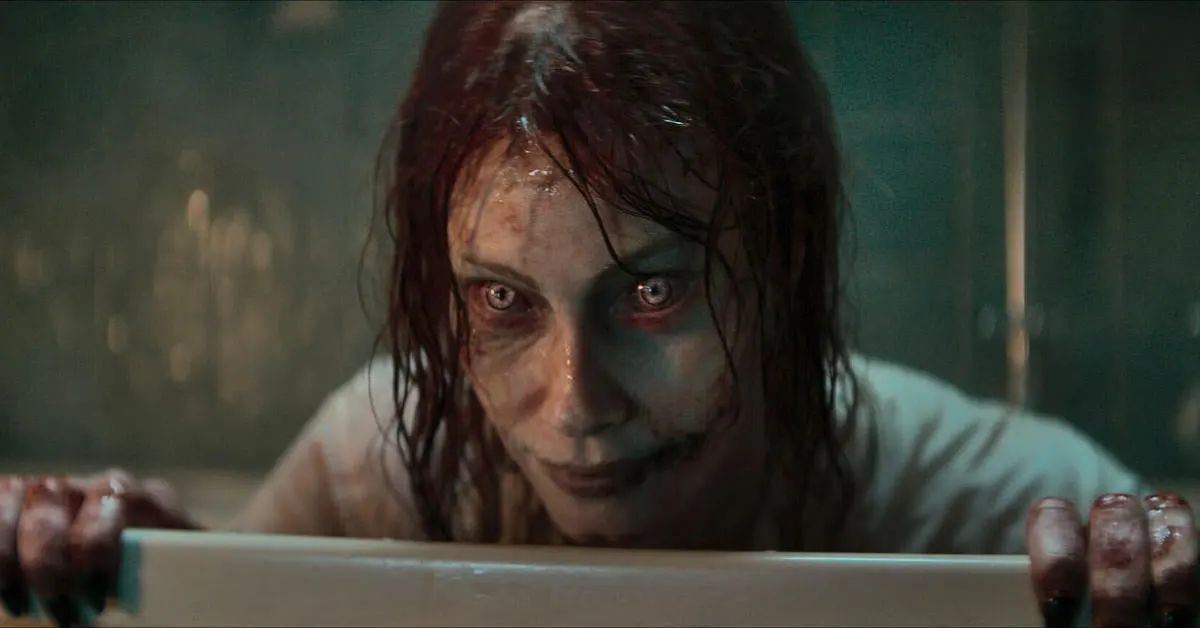
Production has begun on the latest installment of the renowned horror series, Evil Dead Burn, with the Deadites being released once more. Director Sébastien Vaniček announced this news via a post from the set, which he shared on Instagram, indicating that the film is scheduled for release in 2026. Known for his critically praised French spider-horror film Infested, Vaniček is both co-writing and directing the new addition to Sam Raimi’s Ghost House Pictures. This standalone spinoff will follow the Deadites as they torment a fresh group of characters in a new setting, expanding the franchise’s modern narrative beyond the tale of Ash Williams, played by Bruce Campbell.
Enthusiasm among horror enthusiasts is running high regarding Vaniček’s participation in the movie “Evil Dead Burn,” as his directorial techniques are perceived as ideally suited for the franchise’s violent and suspenseful legacy. His 2023 hit film, “Infested,” received widespread acclaim for its skillful portrayal of claustrophobic horror, trapping characters within a crumbling apartment building while they are pursued by a type of spider that rapidly evolves and grows smarter. Furthermore, the gritty realism of “Infested”‘s creature horror, achieved through practical effects, makes Vaniček an excellent candidate to lead the development of a fresh “Evil Dead” narrative.
The upcoming horror film titled “Evil Dead Burn” will be headlined by Souheila Yacoub, recognized for her role as the Fremen warrior Shishakli in “Dune: Part Two”. Accompanying her is a robust ensemble of supporting actors, including Hunter Doohan from “Wednesday”, Luciane Buchanan from “The Night Agent”, and Tandi Wright, who was previously seen in the horror blockbuster “Pearl”. Although details about their characters are being kept secret, the casting continues the current series’ trend of focusing its story around a captivating female lead, echoing the performances of Jane Levy in 2013’s “Evil Dead”, and Lily Sullivan and Alyssa Sutherland in “Evil Dead Rise”.
The Evil Dead Universe Is Expanding on Multiple Fronts

Moving swiftly into production for “Evil Dead Burn” is only one aspect of an extensive growth plan for the “Evil Dead” universe. In addition, a different, standalone spinoff movie is currently being developed simultaneously. This upcoming project is being penned and directed by Francis Galluppi, renowned for his crime thriller “The Last Stop in Yuma County.” Galluppi’s film is based on an original concept he presented directly to Raimi, who praised the director’s skills. The simultaneous development of these two projects indicates a fresh approach by Ghost House Pictures, leveraging their brand to showcase emerging horror storytellers.
As a passionate movie enthusiast, I can’t help but marvel at how this fresh wave of creativity stems directly from the staggering success of 2023’s “Evil Dead Rise.” After the original trilogy wrapped up in 1992, the silver screen fell silent for the franchise until the 2013 reboot gave birth to the beloved series “Ash vs. Evil Dead.” The cancellation of that show left us hanging on a cliffhanger about the future. But then, director Lee Cronin’s “Evil Dead Rise” stormed the scene like a relentless demon, captivating both critics and audiences alike. It raked in over $147 million worldwide on a modest budget, unequivocally demonstrating that the core concept of this franchise continues to resonate with contemporary viewers. Now, Vaniček’s “Burn” is being filmed, and Galluppi’s project is on the horizon. This means the “Evil Dead” universe is actively constructing a chilling new interconnected world of terror, one that nurtures fresh talent and provides a platform for original storytellers to craft their unique take on the “Evil Dead” saga.
Evil Dead Burn is scheduled to be released in theaters on July 24, 2026.
Read More
- Best Controller Settings for ARC Raiders
- Ashes of Creation Rogue Guide for Beginners
- Stephen Colbert Jokes This Could Be Next Job After Late Show Canceled
- DCU Nightwing Contender Addresses Casting Rumors & Reveals His Other Dream DC Role [Exclusive]
- 7 Home Alone Moments That Still Make No Sense (And #2 Is a Plot Hole)
- 10 X-Men Batman Could Beat (Ranked By How Hard It’d Be)
- Is XRP ETF the New Stock Market Rockstar? Find Out Why Everyone’s Obsessed!
- XRP: Will It Crash or Just… Mildly Disappoint? 🤷
- 10 Most Brutal Acts Of Revenge In Marvel Comics History
- Katy Perry and Justin Trudeau Hold Hands in First Joint Appearance
2025-07-23 12:39